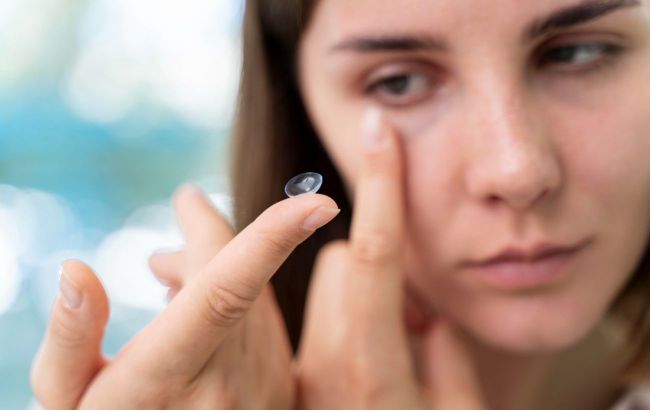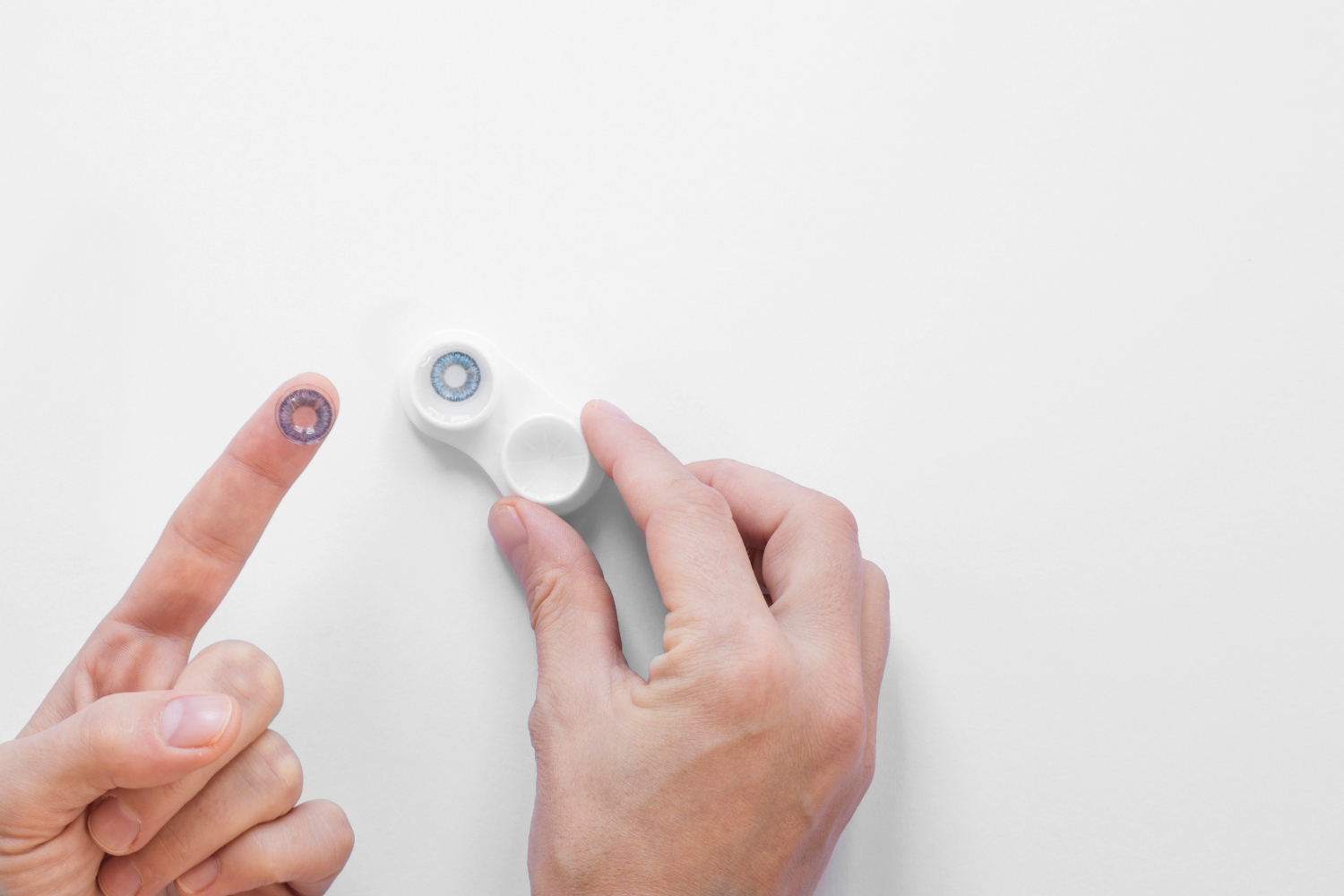Sleeping with contact lenses - Safe or risk of bacterial growth, hypoxia
 Can you sleep in contact lenses (photo: Freepik)
Can you sleep in contact lenses (photo: Freepik)
Contact lenses are quite a convenient way to have clear vision. They don’t fall off or break like glasses and vary in composition, wear duration, diopters, and curvature radius - seemingly offering only advantages. However, the question remains whether it is safe to sleep in them.
Web-portal Health explains the dangers of sleeping in contact lenses.
Can you sleep with contact lenses
Since people can comfortably wear lenses for long periods during the day, it is often believed that sleeping in lenses is also safe. However, experts agree that this is not the case.
Although there are lenses that are indicated for not only daily wear but also for sleeping (although this reduces the duration of use), there are certain risks.
What problems arise from sleeping in lenses
Ophthalmologists highlight two main problems that can be caused by wearing lenses while sleeping.
Obstructing oxygen access
According to James Reynolds, a professor of ophthalmology at the University at Buffalo School of Medicine and Biomedical Sciences, the cornea, where contact lenses sit, lacks blood vessels and thus relies on oxygen from the air.
Contact lenses can impede the access of sufficient oxygen to the cornea, which can lead to damage to the surface cells of the cornea known as epithelial cells.
Although such damage occurs occasionally, and in most cases, these cells regenerate, if deprived of oxygen for too long - such as when a person consistently sleeps in contact lenses - the problem can worsen.
Promoting bacterial growth
As noted by Robert Feder, MD, if tears cannot easily reach the cornea, it can break down and be vulnerable to bacteria present on the contact lens.

Do you need to remove contact lenses at night (photo: Freeepik)
Although soft lenses retain water, they can also trap debris or bacteria that accidentally enter the eye during the day. If lenses are not regularly cleaned, people risk getting an infection. The risk increases if sleeping in lenses.
Because, according to the doctor, sleeping in contact lenses, especially if done frequently, creates an ideal, warm, and dark environment for bacteria, while making the cornea more vulnerable.
This can cause corneal ulcer (bacterial keratitis) - a painful defect on the surface of the cornea, often caused by bacterial infections.
How to reduce risks
It is important to note that while the risks of infection and negative effects on vision increase due to sleeping in contact lenses, the overall situation is not so critical.
For example, estimates show that the annual incidence of bacterial keratitis related to contact lenses is only four cases per 10,000 people in the US.
Moreover, short, occasional naps during the day in contact lenses, unlike overnight sleep, are not considered risky according to experts. However, in any case, it is worth removing contact lenses, applying eye drops, and letting your eyes rest a bit.
Several other factors can affect the risk of developing complications related to wearing contact lenses, including the duration of lens wear, their composition, and an individual's susceptibility to infections.
However, lenses approved for sleep, according to ophthalmologist Jordan Jones, can also pose a risk, although minimal.
As a general rule, it is always safest to adhere to proper hygiene to avoid eye damage. These hygiene practices include the following recommendations:
- do not sleep in contact lenses;
- thoroughly wash hands before putting on or removing contact lenses;
- clean lenses with a special solution;
- replace the contact lens solution in the case with a new one, rather than adding liquid to the old solution;
- avoid water exposure to prevent microbial and bacterial contamination;
- clean the contact lens case and replace it every three months.
This material is for informational purposes only and should not be used for medical diagnosis or self-treatment. Our goal is to provide readers with accurate information about symptoms, causes, and methods of detecting diseases. RBС-Ukraine is not responsible for any diagnoses that readers may make based on materials from the resource. We do not recommend self-treatment and advise consulting a doctor in case of any health concerns.

